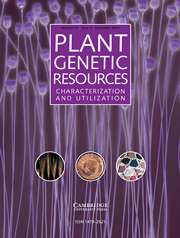Crossref Citations
This article has been cited by the following publications. This list is generated based on data provided by Crossref.
Parthasarathy, V. A.
Srinivasan, V.
Mathew, P. J.
Neema, V. P.
Krishnamurthy, K. S.
Shivakumar, M. S.
Jayashree, E.
and
Ravindran, P. N.
2024.
Handbook of Spices in India: 75 Years of Research and Development.
p.
1393.
Deepak, Doddamalur Appaji
Puneeth, Gudihalli Muninarayanappa
Gowthami, Ravi
Shankar, Muthusamy
Chander, Subhash
Malhotra, Era Vaidya
Archak, Sunil
and
Agrawal, Anuradha
2024.
Trans situ conservation of Piper nigrum L. in India—a review.
Genetic Resources and Crop Evolution,


